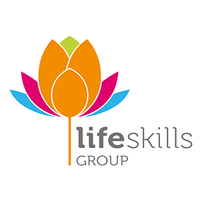Most of us are familiar with the postcode lottery. This is the idea that depending on what postcode you are born into dictates the opportunities you have. This is more than an idea, there are plenty of statistics that support it: cue the graph of affluent schools with above average academic performance vs schools in a low socioeconomic postcode performing below average.

The reasons for this are also well documented, and as teachers some are within our control and others are part of a bigger problem. What would this graph look like if we changed the x axis of this graph from academic performance to ‘happiness’?
Complete the graph and the sentence below … (I know you probably won’t do it, but it is more fun if you do).

I drew this graph because…
I have asked many groups of educators to complete this graph and sentence. Here are a couple of examples of their responses.

I drew this graph because: I teach in an affluent area and there is a lot of pressure on our kids. When I have worked in lower socioeconomic schools the kids seemed happier to me.

I drew this graph because: I wasn’t sure how best to show that there are happy and sad students from all backgrounds, so I drew two lines.

I drew this graph because: sadly, I think that the graph follows a similar trend to academic performance, I think financial pressure in the home dramatically contributes to student happiness.

I drew this graph because: this is what I want the answer to be.
The next question I ask is:
What would happen if we changed the y axis from socioeconomic status to teacher knowledge of student happiness?

I drew this graph because: if the teacher is aware of how the student is feeling, they can create experiences to make them happier, if they don’t know they can’t help.
There is always rich discussion and interesting responses in these activities, but inevitably what ends up happening is we end up in a conversation about defining happiness and measuring it. So, a few points to that end.
- Measuring happiness is contentious. The simplest and most reliable way is to ask students. To trust this data, the student must have a safe place where they feel comfortable to express how they actually feel.
- Over what time period? Emotions aren’t constant, they shift rapidly. Taking a pulse check once a term is pretty unreliable. High frequency collection assists you get a more complete picture.
Is happiness the right aim? If a school set a target of 90% of students are happy 90% of the time is that realistic? Is quantifying a % of students that are happy sensible? Probably not.
What does come out of this discussion is that once students reach the classroom it is less about postcode and more about the teacher. Consistently what is tabled is that regardless of socioeconomic status, teachers who have an awareness of the wellbeing of their students can deliberately and positively influence student happiness by creating experiences, support, and adjustments in the environment.
[ Rydr Tracy is the Head of Education at Life Skills Group and former Director Strategic Priorities at CESE. He is a specialist in evidence-informed practice in educational innovation, with a career focus on strategic change that improves student outcomes. He draws on a rare blend of successful experience in schools, system leadership roles and industry practice – experience that has given him deep understanding of the complexities of the education sector from the classroom to the boardroom and a demonstrated capacity to generate practical recommendations that are grounded in context and evidence. ]
.png?width=500&height=374&name=Logo_transparent%20(2).png)





